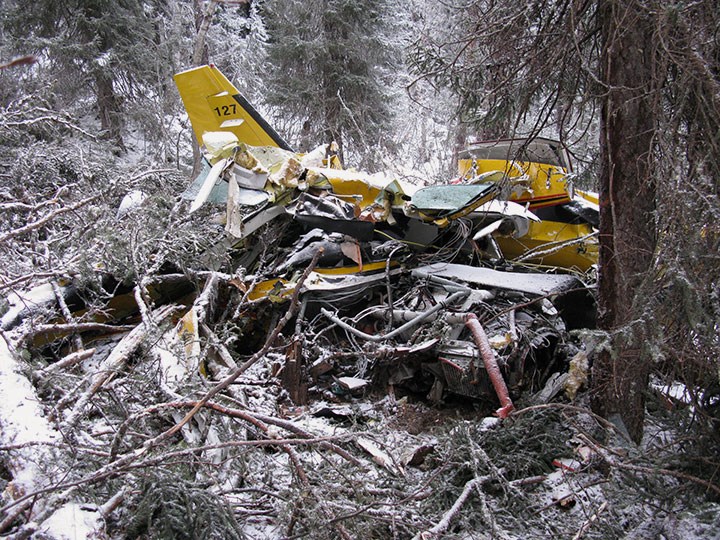The Transportation Safety Board of Canada has concluded that ice accumulation and the company practice of operating in icing conditions led to the fatal crash of a Wasaya Airways cargo plane in northwestern Ontario two years ago.
The lone occupant of the Cessna 208B Caravan, Captain Nick Little, died on December 11, 2015 when the aircraft went down about 10 minutes after departing the Pickle Lake Airport en route to Angling Lake/Wapekeka Airport.
The plane was destroyed.
The TSB report, released Thursday, says the aircraft performance was consistent with operation in icing conditions that exceeded its capabilities, and that "the high takeoff weight" exacerbated the problem.
As the pilot continued to fly in icing conditions, rather than returning to base, the plane experienced "substantially degraded performance as a result of ice accumulation, which led to an aerodynamic stall, loss of control and collision" with the ground.
TSB investigators also determined that company practices did not ensure that operational risks "were assessed and managed appropriately."
The report says flying into forecast icing conditions was "a company norm" although four of its five Cessna 208B planes were prohibited from operating in these conditions.
It also notes that at the time of the accident, Wasaya had not implemented all the mitigation strategies from a January 2015 risk assessment of Cessna 208B operations in known or forecast icing, and remained exposed to some unmitigated hazards that had been identified in the assessment.
"Consequently, pilots lacked important information and tools for sound decision-making," the report says.
Following the accident, Wasaya conducted two safety management system investigations.
Subsequently, the company increased minimum weather requirements for visual-flight-rules flights and improved operational flight plan procedures. Wasaya also increased the time allocated for technical training on the Cessna, tested a reporting system for icing encounters, and revised the maintenance schedule for the application of anti-icing treatments.
Wasaya CEO Michael Rodyniuk issued a statement Thursday afternoon saying the company's thoughts and prayers continue to be with the pilot's family as they grieve their loss.
Rodyniuk said the loss of Captain Little cannot be undone, "however we can learn from the event and take every precaution to make certain it never happens again."
The statement noted the enhanced safety procedures the company has made, and said Wasaya is also working with Transport Canada to bring about improvements to navigation aids and infrastructure.
The company serves 25 communities in northern Ontario and Manitoba.
